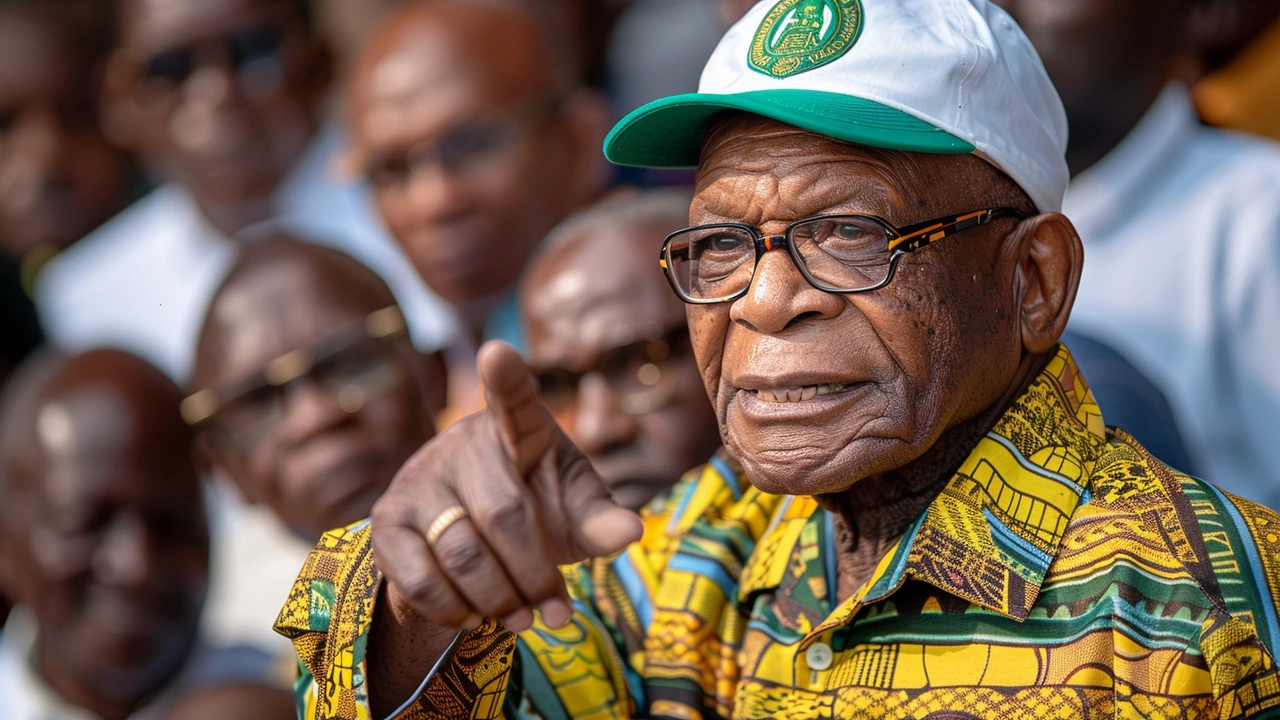Why Jacob Zuma Was Denied Entry at Electoral Commission Ceremony: A Closer Look
 Jun, 4 2024
Jun, 4 2024
Security Measures Lead to Denial of Entry for Jacob Zuma at Electoral Commission Event
In an unusual and headline-grabbing event, the South African Police Service (SAPS) denied former president Jacob Zuma access to the Electoral Commission’s Results Operations Centre (ROC) at Gallagher Estate in Midrand, Johannesburg. This event occurred during a crucial time when President Cyril Ramaphosa was addressing the nation at the results declaration ceremony. The incident has sparked widespread discussion and debate, with many questioning the motives and security protocols involved.
Details of the Incident
SAPS spokesperson Athlenda Mathe provided a detailed explanation for this decision. According to Mathe, Jacob Zuma, the leader of the uMkhonto weSizwe Party (MK), arrived at the ROC while President Cyril Ramaphosa was already speaking. This timing proved critical. The National Joint Operational and Intelligence Structure (NATJoints) quickly decided to close the doors to ensure the security of the venue and the smooth progression of the event. The Independent Electoral Commission (IEC) had earlier announced that all guests should be seated by 17:30, with the official program beginning precisely at 18:00. This stringent schedule left no room for latecomers, and as a result, the police were firm in their decision to bar entry, irrespective of the individual's status or political affiliation.
Jacob Zuma’s unexpected arrival created a unique challenge for the security personnel. Authorities were aware of the potential risk factors that could arise from disruptions during the President's address. Therefore, to avoid any possible security breach or interruption, the operational decision was clear: no one would be allowed in once the event had started.
Ensuring Security and Smooth Execution
The reasoning behind such strict measures stems from a need to ensure the protection of not just President Ramaphosa but all attendees. High-profile events like the results declaration ceremony demand meticulous planning and robust security protocols. The electoral process itself is already a sensitive issue, with political tensions running high. Ensuring that the announcement of election results proceeds without any disturbances is paramount. Any deviation or lapse could lead to significant unrest or, at the very least, a tarnished view of the event's integrity.
Mathe emphasized that the decision to deny entry was purely operational and had no political motives. She underlined that such measures are standard protocol in high-security events where the attendance of political dignitaries demands elevated vigilance. This stance has been echoed by many within the security apparatus, reinforcing the notion that the rules applied during the event were nondiscriminatory and aimed solely at maintaining order and safety.
Broader Implications and Public Reaction
The incident involving Jacob Zuma has not gone unnoticed by the public and political commentators. It has sparked a series of reactions, with some critiquing the decision as overly harsh, while others praise the police for their steadfastness in upholding security protocols. Whether one views the decision as a necessary precaution or a misstep, what is clear is that it has added another chapter to the already intricate political landscape of South Africa.
The delay or denial of a high-profile individual's entry, especially someone as prominent as Jacob Zuma, naturally garners media attention and public scrutiny. While some supporters of Zuma might feel slighted, it is crucial to consider the broader context and the potential repercussions of allowing any significant disruption during the President's speech.
Understanding NATJoints and Security Protocols
The National Joint Operational and Intelligence Structure (NATJoints) plays a pivotal role in coordinating security efforts across various sectors. Comprising multiple agencies, including SAPS, the intelligence services, and other critical security organs, NATJoints ensures that high-profile events are secure from any threats. Their role is to ensure that decisions, such as the one to bar latecomers, are made swiftly and efficiently, prioritizing the safety of all patrons.
Such decisions are not taken lightly. Security assessments are conducted well in advance, considering numerous risk factors and potential scenarios. The dynamics of political events often require rapid decision-making capability, and NATJoints has developed a reputation for its proficiency in managing these complex situations.
Conclusion
The decision to deny Jacob Zuma entry during the results declaration ceremony stands as a testament to the prioritization of security and order. While it has certainly stirred conversations and opinions, it underscores the complexity and necessity of stringent security protocols in high-stakes environments. As the dust settles, the focus will likely shift back to the electoral results themselves and the future political trajectory of South Africa.